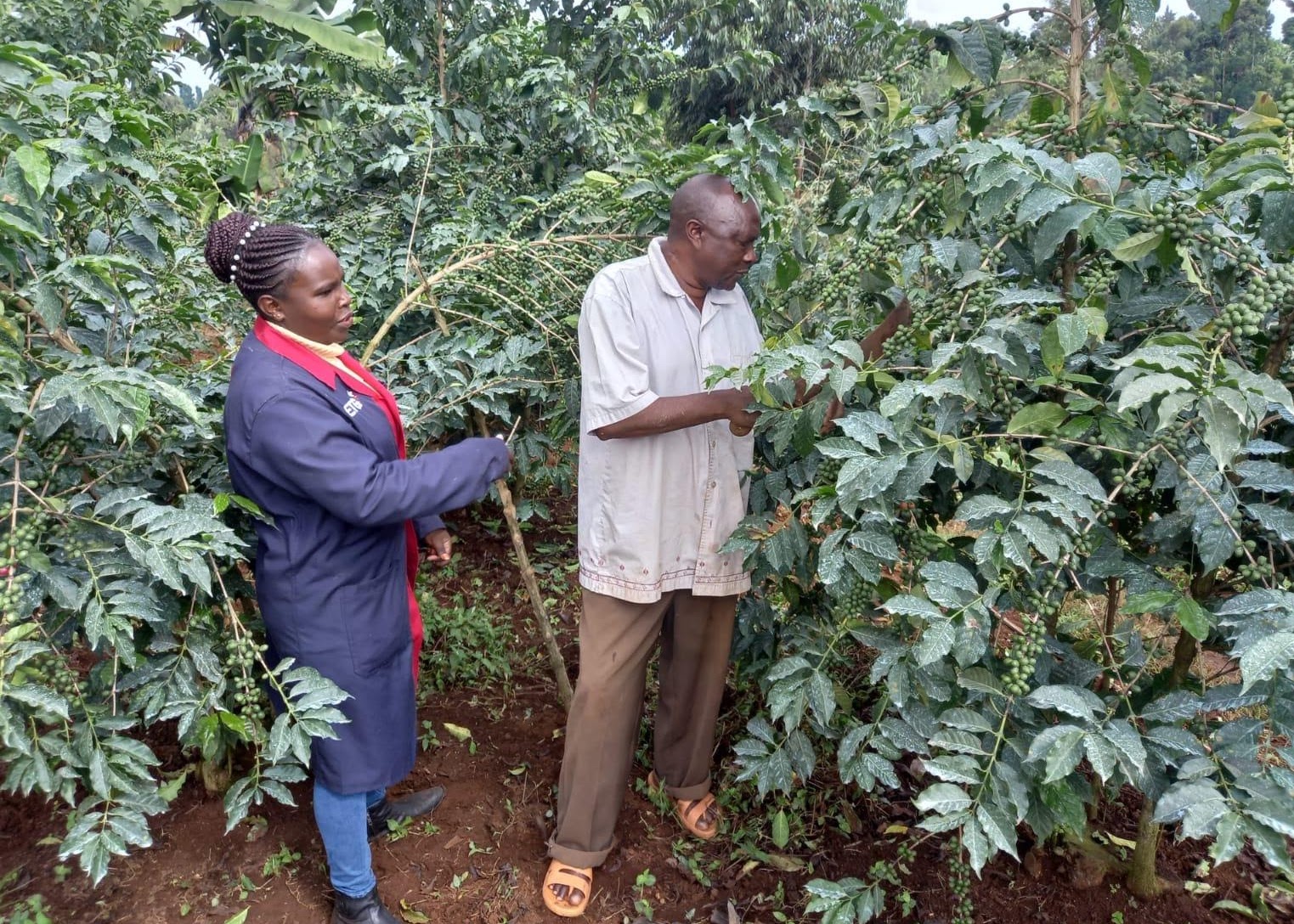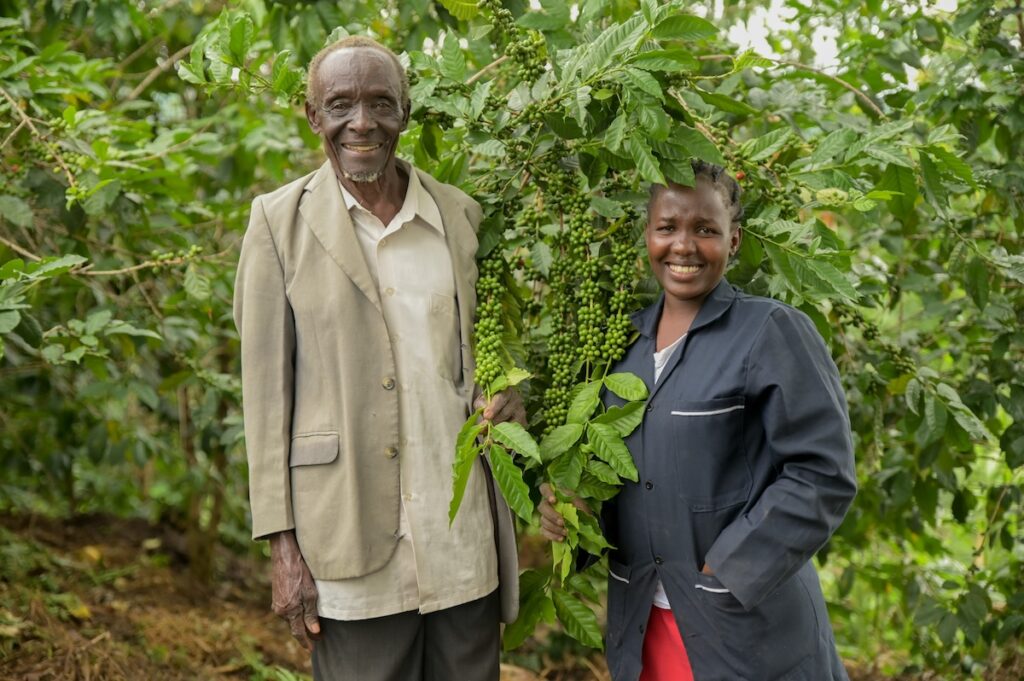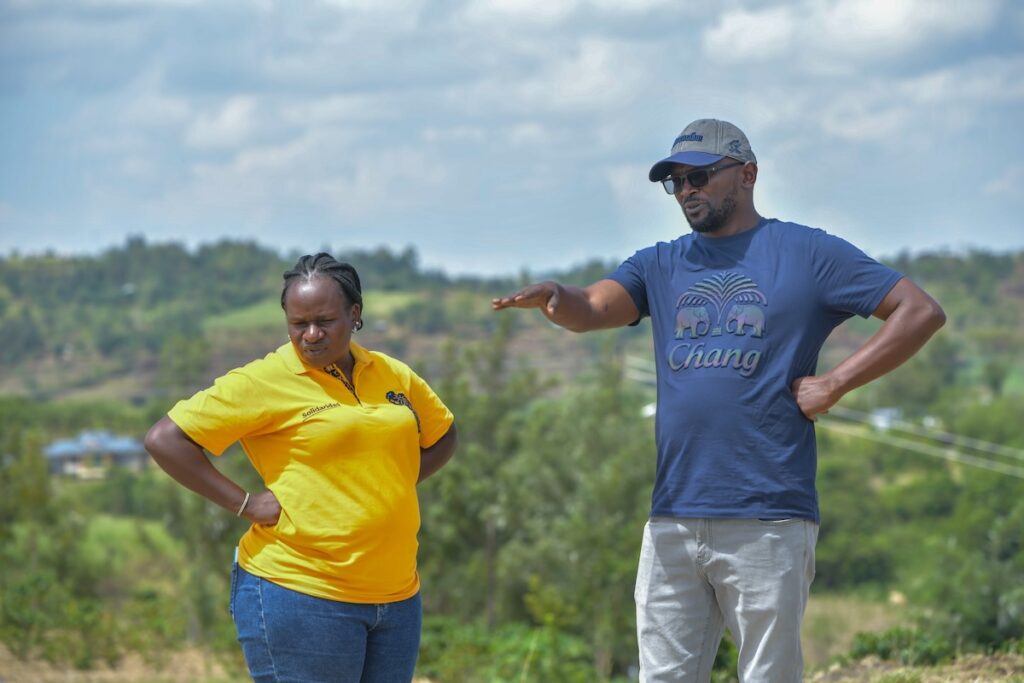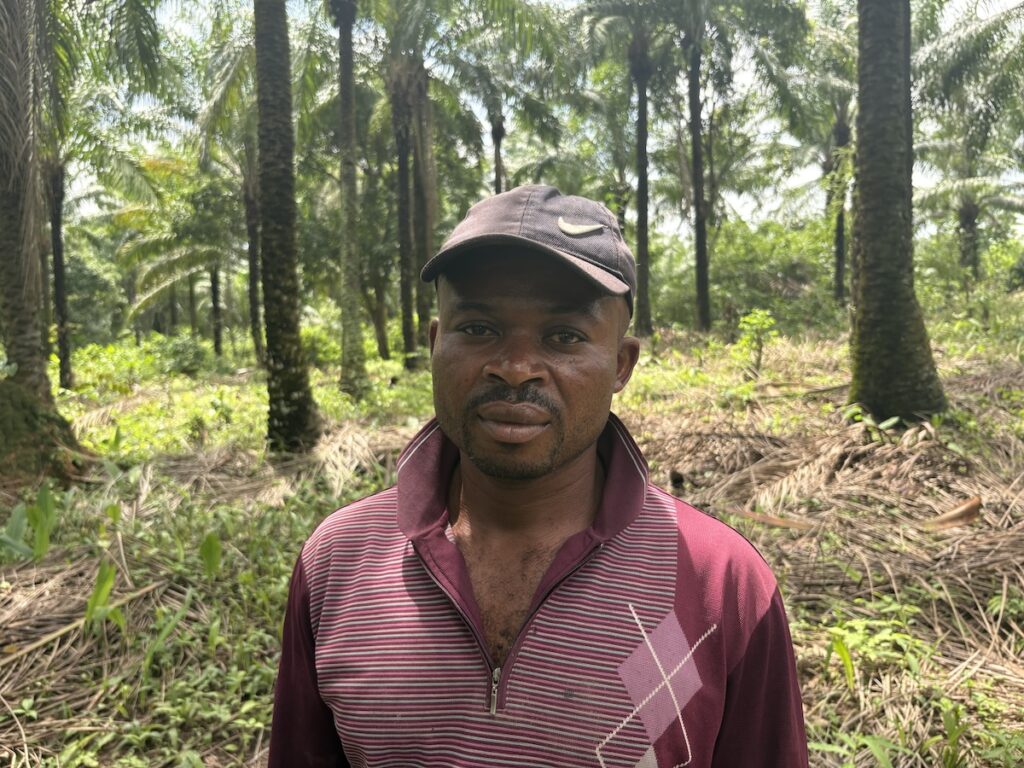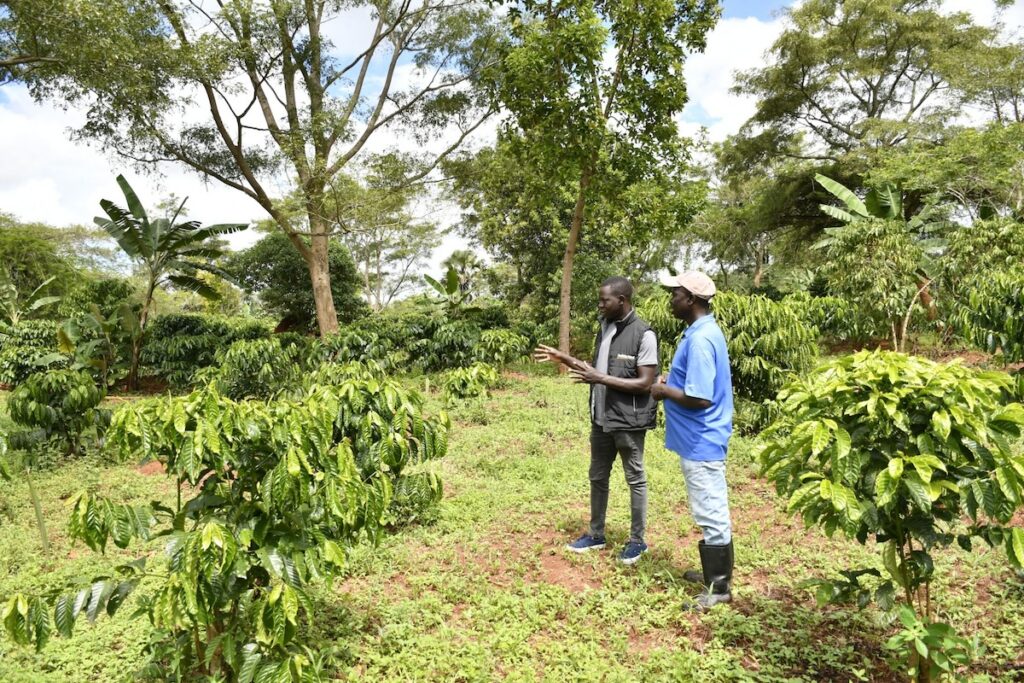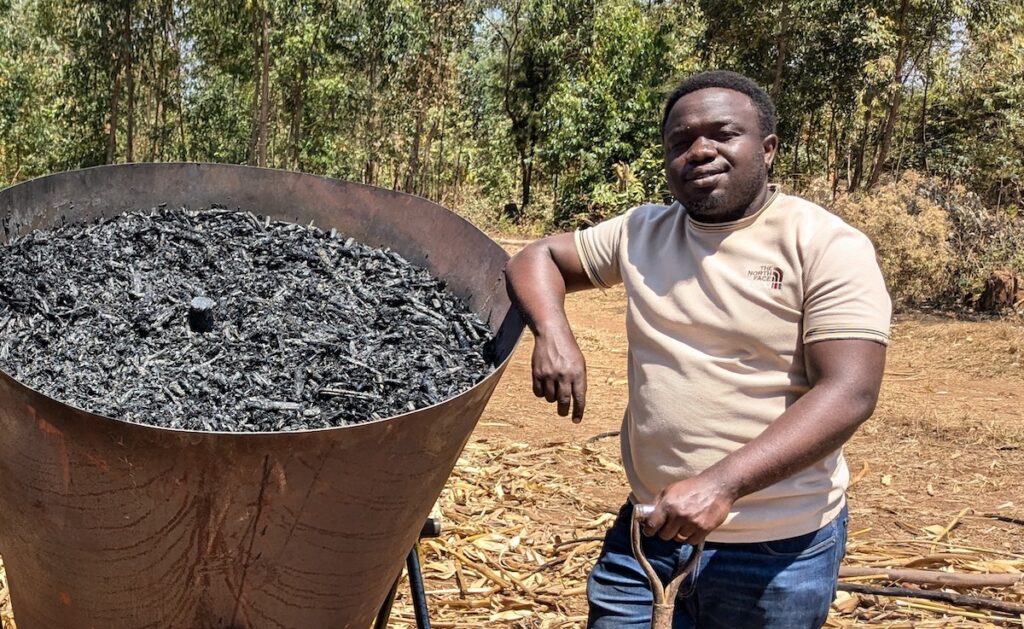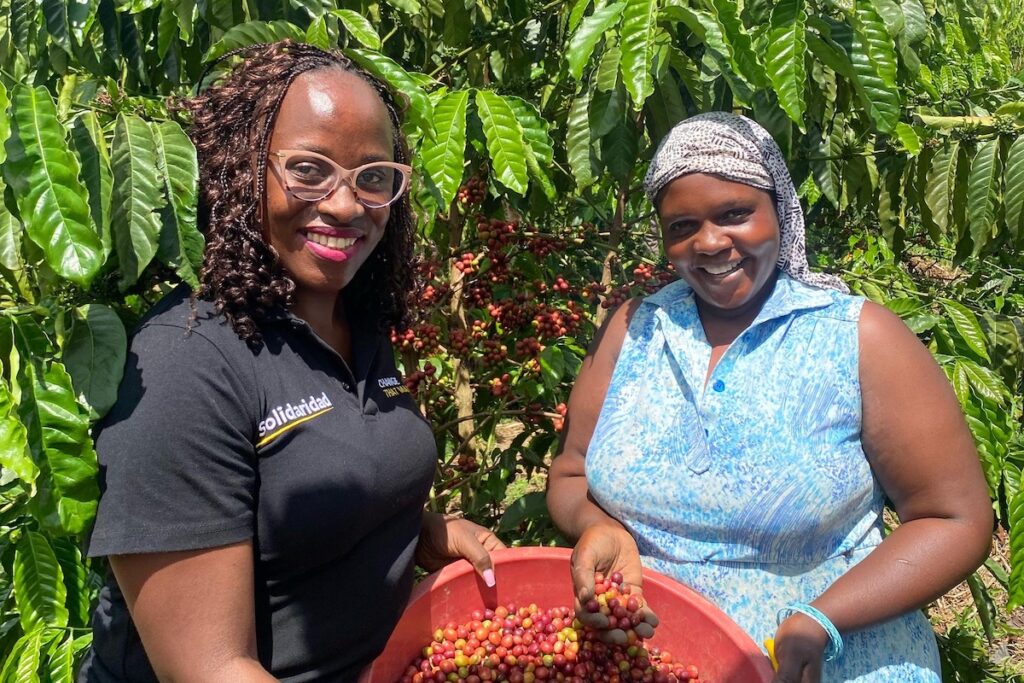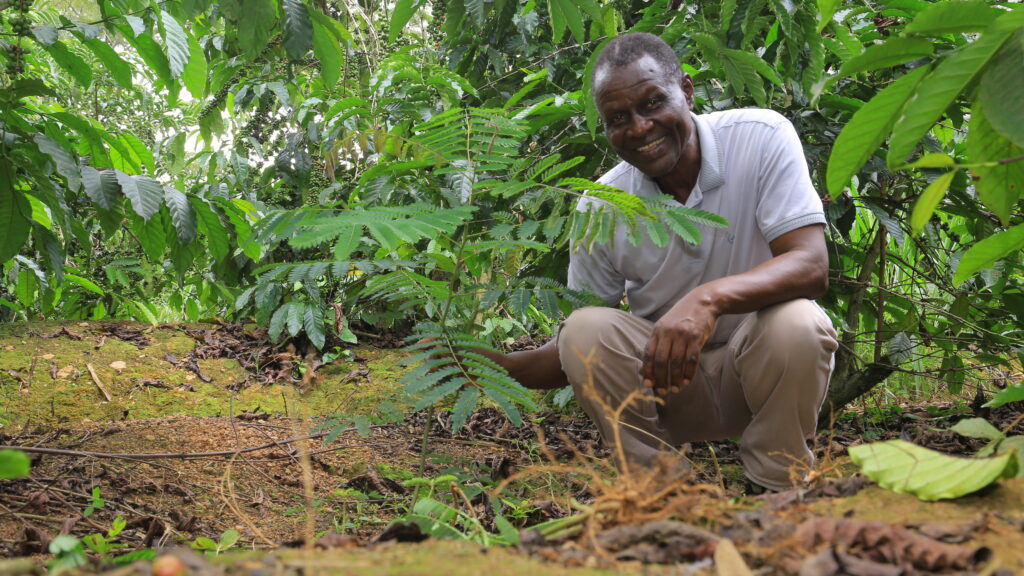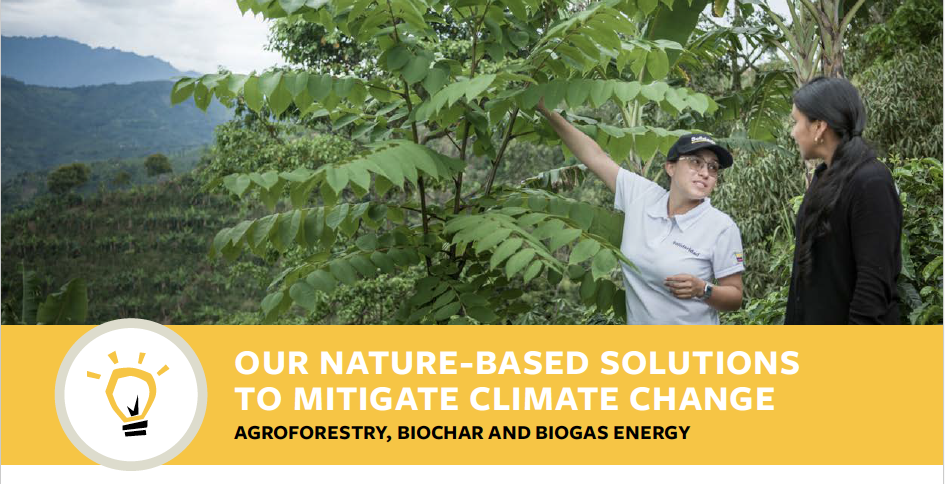Jackson Ngari is a second generation coffee farmer in Nyeri County, Kenya. The farmer and father of three joined the family coffee farming business in the 1980s. At the time, farmers in Kenya were producing an average of 120,000 metric tonnes of coffee per annum (Gro Intelligence, 2019) until the 1990s, when coffee volumes plummeted by more than 50 percent.
Coffee farmers were facing many challenges. The challenges were linked to among other things pests and diseases, including frequent attacks by coffee berry and leaf rust diseases, sub-optimal extension services, climate change, and limited access to resources including information on production practices and farming inputs.
Jackson Ngari
When Jackson and his siblings took over the management of the family coffee farm in 2014, they were harvesting 500-600 kilogrammes of cherry from their one-acre farm. In addition to production related challenges, the low productivity (quantity, quality) was attributed to the mismanagement and poor governance of coffee farmer cooperatives which led to low incomes, further exacerbating the vulnerability of coffee farmers.
Training on Good Coffee Agronomy
The turnaround for Jackson started in 2018 when the Netherlands Enterprise Agency (RVO) funded Solidaridad’s Food Security through Improved Resilience of Smallholder Coffee Farmers in Ethiopia and Kenya (FOSEK) project. Between 2015 and 2021, Solidaridad’s project team worked to enable coffee farmers like Jackson, and cooperatives such as the Gikanda Coffee Farmers Cooperative Association, to improve their productivity and sustainability. Over the project implementation period, FOSEK trained more than 120,0000 coffee farmers from 35 cooperatives on good agronomic coffee practices. The training also covered best coffee practices, (coffee and food crops) nursery establishment and management, agri-nutrition, gender empowerment and youth involvement using the Gender Action Learning System (GALS) methodology, and cooperative good governance and leadership.
The FOSEK project also provided Gikanda Coffee Farmers Cooperative with 1,000 Ruiru 11 seedlings and supported the construction of a nursery – with a capacity of 30,000 seedlings – to facilitate the production and supply of quality coffee and food crops seedlings to the cooperative members.
Solidaridad equipped me with practical knowledge and skills on proper coffee management. I gained skills on pruning, spacing of coffee trees, and intercropping among other important coffee management best practices.
Jackson Ngari
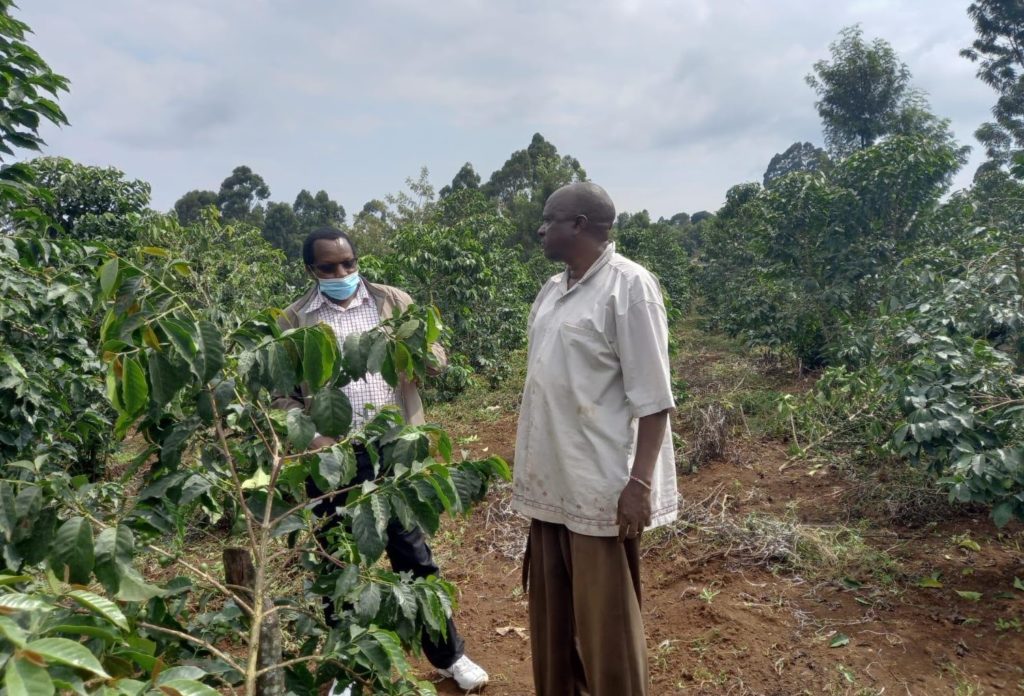
Improving Coffee Farmers’ Resilience and Food Security
In addition to good agricultural practices training on coffee, Ngari also received training on crop diversification. The promotion of diversification and intercropping techniques among coffee farmers was encouraged to improve food and nutrition security and create sustainable livelihoods.
Intercropping and side cropping has enabled me to diversify and reduce vulnerabilities linked with depending on coffee alone. Importantly, diversifying has helped me to produce more without compromising the quality and quantity of my coffee.
Jackson Ngari
To enable farmers to mitigate the adverse effects of climate change, the project also promoted intercropping with crops, such as bananas and fruit trees (macadamia and avocados). Integration of shade trees/crops was aimed at protecting coffee trees from drought stress and over-exposure to the sun to reduce water competition during drought and contribute to soil fertility by providing organic matter and nutrients from falling leaves.
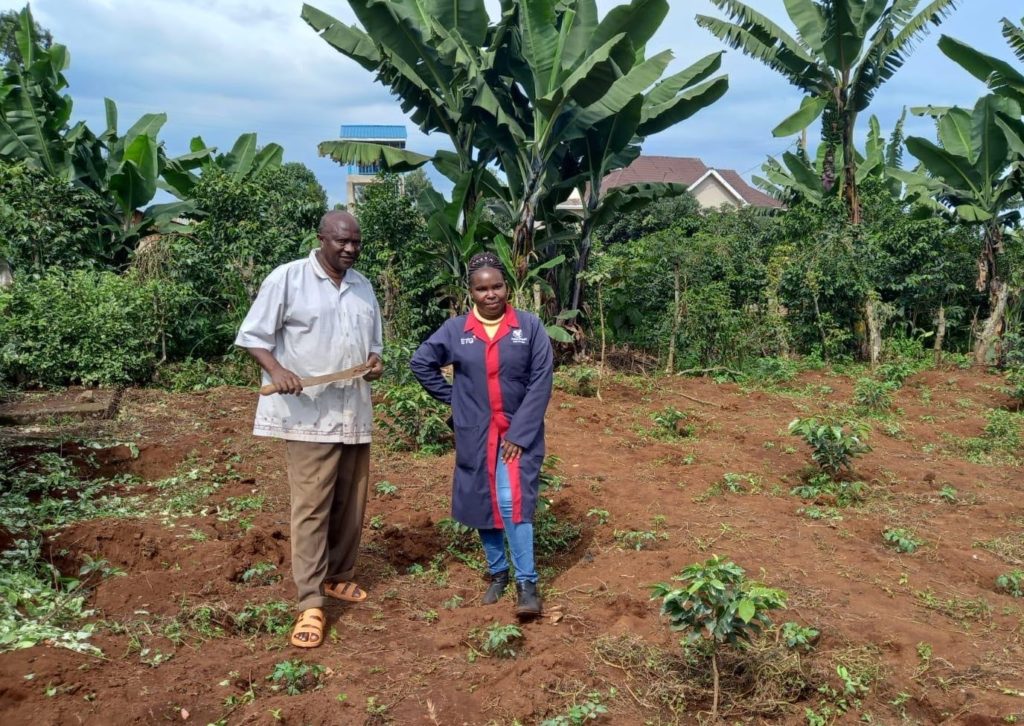
Coffee Farmers’ Cooperatives Institutional Capacity Building
To facilitate access to seedlings and coffee renovation, FOSEK also supported the cooperative to establish a seedling nursery. The nursery has improved farmers’ access to climate-resistant coffee varieties. Since its establishment, 68,000 seedlings have been produced and distributed to approximately 2,200 coffee farmers. FOSEK also trained cooperative managers on governance and leadership, efforts Jackson notes have fostered transparency between the cooperative and coffee farmers and improved efficiencies in the payment of famers.
Hope At Last: Increasing Coffee Productivity
Before 2018, Jackson was producing 500-600 kilogrammes of cherry from his one acre farm – with approximately 100 coffee trees.
In the 2019/2021 coffee season, I harvested about 1,500 kilogrammes of cherry, up from 500 kilogrammes in previous years. Some of the contributing factors include increased access to expert information from coffee agronomists and improved coffee variety seedlings.
Jackson Ngari
In the same coffee period (2019/2021), Gikanda Coffee Farmers Cooperative paid farmers Kenya Shillings 98.5 per kilogramme of coffee. Jackson credits the positive trends in his coffee business to the support from the cooperative (providing seedlings, training, farmer-to-farmer extension services etc.) and coffee agronomists from the Kenya Coffee Research Institute (CRI).
New Income Stream
Jackson, who remains committed to his pursuit of growth, notes that his coffee farming business has been transformed in recent years. The decision to diversify, Jackson adds, improved the quality of life for his family.
My coffee farm’s yield has improved from 3 to 10 kilogrammes of cherry per tree. Diversification has also enabled me to produce food for household consumption. The increase in coffee yields and surplus food crops have also enabled me to earn additional income. I am now able to afford nutritious food and healthcare for my family. The extra income has also enabled me to venture into dairy farming.
Jackson Ngari
He plans to continue farming coffee to take advantage of the increasing coffee prices. Ngari also hopes that coffee prices will increase further. He also plans to diversify his income streams by scaling up fruits and food crops farming.

